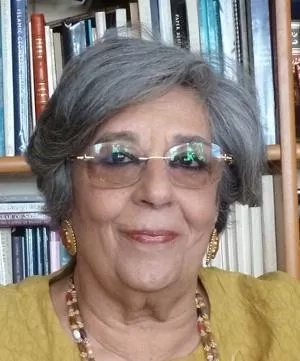Iconoclasm
ICONOCLASM: PAST & PRESENT ISSUES October 4 – 6, 2021, Wrocław, Poland
Given the confusion still prevalent all over Europe concerning the COVID-19 pandemic, the frustrating slowness of the vaccination campaign in many countries, and the uncertainties concerning international travel, the History & Archaeology Section, in agreement with the Academia Europaea authorities and with the Wrocław Hub staff, twice postponed the conference on Iconoclasm, initially scheduled for October 2020. This delay of one full year, nonetheless, allowed us to assemble an exceptional panel of participant speakers.

Photo by: fattah_artwork
Background and rationale
Why is iconoclasm such a recurring phenomenon?
Since ancient times, iconoclasm, the destruction of images or monuments for religious or political reasons, has been a recurring phenomenon throughout the world. From Egypt to China or India; in the Christian, Muslim, and Judaic traditions, iconoclasm has been the pretext for destruction – the erasure of unwanted objects of worship and, at the same time, the reassessment of the principles of conceptual belief. But iconoclasm has also been the manifestation of a recurring damnatio memoriae, the ancient Roman practice of official obliteration of the memory of a specific individual or event. The current negative trend of “political correctness”, political fracturing, and manifestations such as “no-platforming”, “historical re-interpretation”, and “educational exclusions”, has imparted a new dimension to this practice and an urgency in undertaking an in-depth systematic and scholarly analysis of these issues in a modern post-colonial and “post-authoritarian” European societal context.
Scope and development
That first conference, held in Wrocław (Poland) between October 5 and October 7, 2020, aimed to analyse iconoclasm from a decidedly interdisciplinary perspective, with interventions from historians and archaeologists, as well as from specialists in the fields of art, literature, political science, classical studies, theology, and philosophy. Our intention was to involve most – if not all – of the sections in Classes 1 and 2 of Academia Europaea and YAE. The event was intended to be further developed into a major project theme of AE that could contribute to defining the position of Academia Europaea on the subject. The intention was to widen the scope of analysis and broaden the interdisciplinary participants. Furthermore, the first outputs were expected to constitute a special “open access” issue of the European Review. It was a test event to gauge the potential scope for a future series. The subsequent series was seen as an opportunity to include other AE Hubs, and especially the new Regional Knowledge Hub, launched recently by AE at Tbilisi in Georgia. Their unique contexts and issues deriving from the Caucasus region of Europe promised to be a valuable input. The event and the subsequent series were also expected to provide us with a means by which the AE could help with the process of capacity building and integration of the Caucasus academic community into our wider European scholarship family.
Sponsor
The event was sponsored by Riksbankens Jubileumsfond.

CALL FOR PAPERS
REGISTRATION
The process of collecting proposals is closed.
The call for papers is available here.
The conference was live-streamed via You Tube.
The event was open to the public without registration.










REGISTRATION
The process of collecting proposals is closed.
The call for papers is available here.









 Iconoclasm.pdf
Iconoclasm.pdf